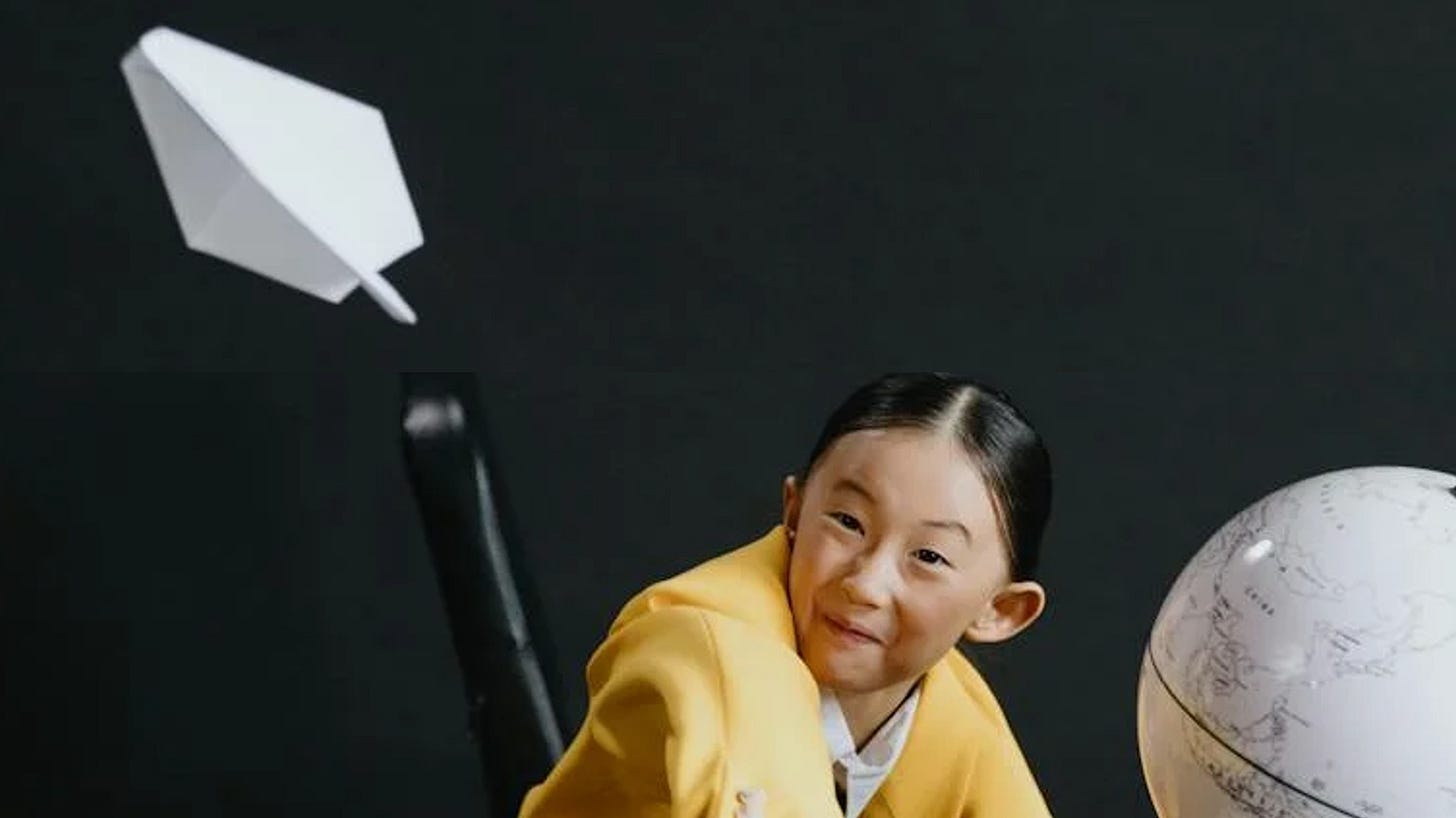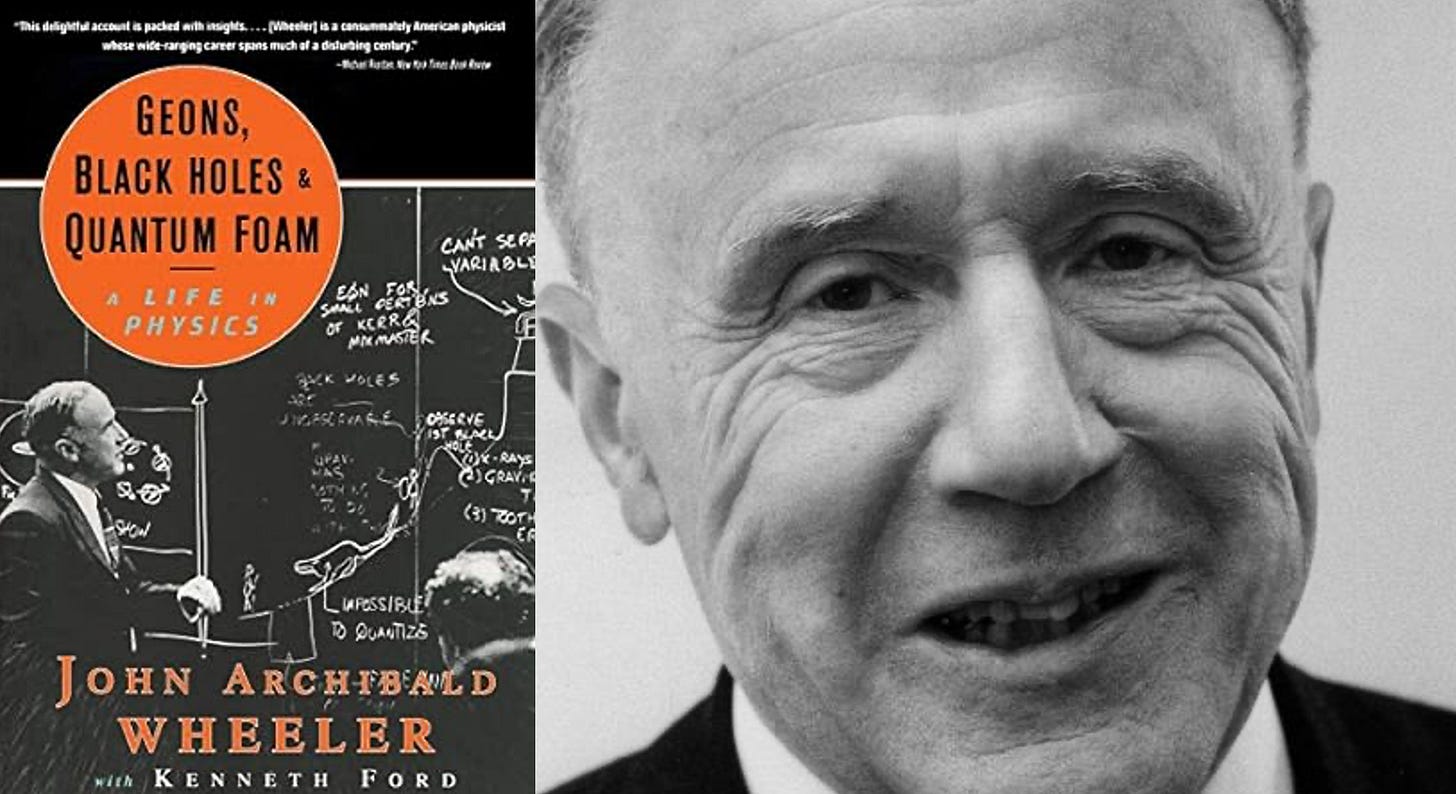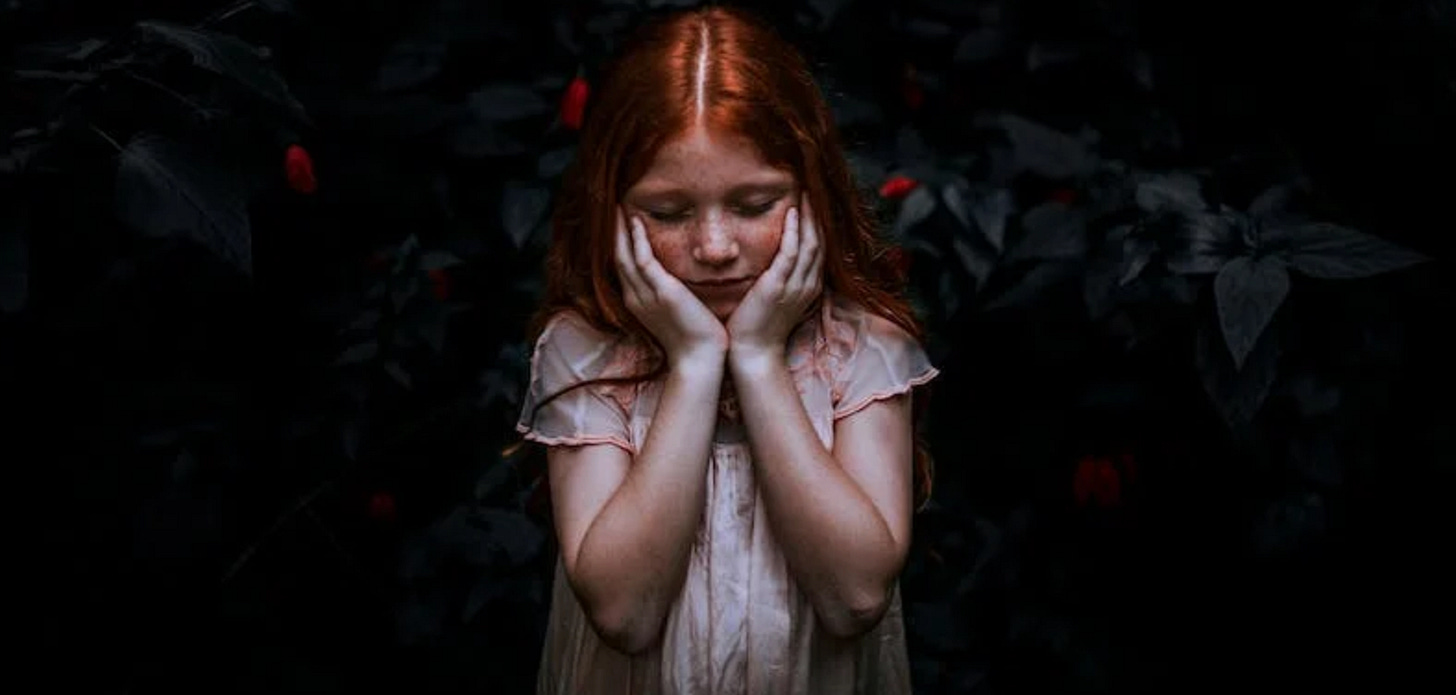Exploring every rabbit hole there is. For more wanderings, become an Alice in Futureland subscriber—it's free.
🍄 AudioDose Alice on Sonic Mushrooms: listen to Citizen of the Solar System
🎧 Alice podcasts
“I like to say, when asked why I pursue science, that it is to satisfy my curiosity, that I am by nature a searcher, trying to understand. I am still searching. Yet I know that the pursuit of science is more than the pursuit of understanding. It is driven by the creative urge, the urge to construct a vision, a map, a picture of the world that gives the world a little more beauty and coherence than it had before. Somewhere in the child that urge is born.” —John Wheeler, Autobiography
John Archibald Wheeler was a theoretical physicist who worked on both down to-earth projects and highly speculative ideas, and always emphasized the importance of experiment and observation, even when speculating wildly. His research and insights had large impacts on nuclear and particle physics, the design of nuclear weapons, general relativity and relativistic astrophysics, and quantum gravity and quantum information. But his greatest impacts were through the students, postdocs, and mature physicists whom he educated and inspired.
He was guided by what he called the “principle of radical conservatism,” inspired by Niels Bohr: Base your research on well-established physical laws (be conservative), but push them into the most extreme conceivable domains (be radical). He often pushed far beyond the boundaries of well understood physics, speculating in prescient ways that inspired future generations of physicists.
Hello, we’re Alice and we are always in a state of wander. In 2005, we visited with John Archibald Wheeler in his nursing home in New Jersey. Little did we know that we were not only meeting the “father of the black-hole,” we were meeting a magic maker. Wheeler died three years later in 2008. But the magic lives on.
An Interview with John Archibald Wheeler:
How come existence? A simple question.
"You would laugh if you’d seen me on Friday at the public library at Princeton, collecting one pile of books on magic and another pile of children’s books on magic. How does the world differ from a magic show, that’s what I wanted to know.
When I was a boy, I had fun with my two brothers and my sister, putting on a magic show and they were very forgiving, they seemed to like it. But they could always reach in and change things so they knew that it was really a magic show and not the real thing. With this world of ours, can’t we reach in and change things? Of course, we do. But there’s so many questions that have to be asked. I believe it was Houdini I saw when my father was giving lectures in Albany, New York, and he took me with him. And he wanted to be free to give these lectures so he gave one of the library staff the business of looking after me. She took me to a magic show. Great! Houdini’s most famous trick was sawing a person in half and putting him back together again. It was only forcing me to ask myself questions that I wouldn’t normally be asking. There’s only so much time left in the world for each of us, and I’ve decided to spend the rest of my time on ‘How come existence?’
I think we have plenty of clues but we haven’t managed to figure out the plot. We don’t know how they all fit together. One of the most interesting things to me was dreaming up an experiment by which you could decide what has happened after it’s already happened. Light, does it go this way or does it go this way? And you make your record and then you decide what you want and, by George, you get it. So we have a certain voice in deciding what shall have happened after it has already happened. Very strange, it’s the so-called quantum feature of light that makes that experiment possible. It was done at the University of Maryland by a team of three. It was fun to go there and see it underway.”
Hmmm, we get it…observe!
“The Herrmann brothers began a tour of the United States in 1861 which included a special magic performance for President Lincoln at the White House. Compars Herrmann gave Lincoln a deck of cards and asked him to shuffle them. Lincoln passed the deck to his secretary of war, Simon Cameron, and said he generally shuffles the cards for me at present. That’s all I have on that. Houdini’s instrument. Houdini invented a simplified stage and put on elegant and refined performance manner and costume; set the standard for virtually every magician who followed him. A good magician, Houdini said, is only an actor playing the part of a magician. Here, I see the emphasis is more on the person than on the act. Let the audience operate the device, I say. I’ve never seen a professional magic show except the one of Houdini in Albany, New York.
When Houdini has a body and he’s sawing him in two, he has to say something to keep people’s attention on the central point. And when he’s finished sawing in two and separates the two boxes, the two halves, then it seems hopeless ever to restore that person to life, but somehow he brings the boxes back together and does something and the person is able to get up and move around perfectly.”
What is the future of physics?
“To be sure, there are more things being found out all the time. But the grand picture of the whole show has yet to be discovered to fit them all together. So this will seem not like looking at a Leonardo painting, a little bit here, a little bit there, but seeing the whole picture in one marvelous unity. Because it really is a marvelous unity. To my mind the greatest discovery made so far by man about nature is Charles Darwin’s discovery: evolution. Here, this young man on board this ship, the Beagle, sailing down the coast of South America, seeing new plants and animals. Then up the west coast, more strange plants and animals, the Andes and all those mountains affected life. And then puzzling, puzzling, puzzling over it. And then the magic clue, the curtain raised before his eyes when he got to the Galapagos Islands. Here these finches, descendants clearly of some finch that had blown there from the mainland, lived a different life from what they had. Some had specialized in getting the bugs out of the bark of the tree, and some had specialized in getting nourishment at the shore of the ocean, creatures that came up. And the finches that were good at one became different than the finches that became good at the other task. So there were two species developed out of one. The survival of the fittest. Evolution through natural selection. It’s such a treat always to go, when one is near London, go 40 or 50 miles south of London to the house where Darwin lived. The natural life in the universe is evolutionary. But how the universe itself came about is such a marvelous development.
Time travel?
“I think it’s going to be when we get to higher speeds of jets and rockets and people go that way, we’ll find that one person’s time is different from another’s. And come back together after their travels, with all different times, and we give up the idea that there is a god given choice of time. We’ll realize it’s a matter for a community. No community, no natural standard of time. I could, in principle, go on a trip which took people back home, which seems a thousand years, but to us on board the spaceship just one year. Come back and find everybody gone that we knew. Last night I noticed in the dining room at this retirement community, a lady having her dinner with two big balloons floating above her. And after dinner, I went over to ask what it was. And I saw on each balloon, 50 years old [gesturing to the next balloon], 50 years old. This was her hundredth birthday.”
Will we speciate and move onto other planets?
“I can’t believe that we will find it necessary to move to some other planet and have a better environment. I have a young colleague now in Chicago, who has written with me a paper on how to save the world from a black hole coming toward it, approaching it. First, how we know it, and second, how we divert it. The main thing is how we know it. A black hole doesn’t give out light of it’s own, to any appreciable extent. But if the sun is behind the Earth and sends its rays past the Earth to the black hole, some of it will go around the black hole and come back and give us a chance to see it. And we can always send out a spaceship with a load of H-bombs on board and give a push to that black hole and shove it in some direction so it’ll escape the Earth. But this idea of the cosmos as a playground, or as a place that we can control, is a good successor to a long series of human advancements. Think of a forest. All those tremendous trees. Sounds beyond the power to do anything. Surely man felt when he first gained the power to think, must have felt, ‘I can’t do anything about that.’ Then later, learned how to cut trees down, make farmland, grow things.”
What about the grand unified theory?
“I think we have an unbelievable amount of work to do to understand the human animal mechanism; the so-called genome. I have the great good fortune to have a son who was a student of James Watson and persuaded Watson to come to our summer place. And there Watson had quiet time and he wrote a book called The Double Helix that was a start of a big advance. Across the street from our physics building in Princeton is a new biology building which is actually for the study of the genome. The study of the coding or the mechanism that tells life what to do. Tells life how to develop. I hope you’ll find somebody who will give an imaginative picture of what the future of that subject will be.
My great hope is to understand how the physical world came into being and how it works. And where we fit into it all. It may be something that will suddenly become clear in a few months – or something that’ll take a few centuries. The main thing is colleagues and discussions.
I have, on the windowsill of a cottage in Maine, a rock which comes from the garden of Academy in ancient Athens which must have heard the discussions of Plato and Aristotle as they walk back and forth. All I need is some mechanism I can put that rock in which will bring forth a sound. Now it’s just imagination, thinking of those men, and how they got us going.
If you read that I have been send to jail, I’ll tell you what it’ll be for. It’s for robbing the grave of Alexander the Great. Nowadays, all that ancient city is under about sixteen feet of water. The Nile is covering it, brought sediment, and I have to go there. The Egyptian Minister of Antiquities I’m afraid would not approve of what I would want to do. I would go there as somebody who’s putting in a gasoline station—a filling station—and I would locate it as near as I can to where the map shows the sarcophagus of Alexander was. I would start digging down. And day by day more dirt comes out—you keep the secret of what you’re really doing and get down to that sarcophagus and bring it up. And if you bring it up, what do you do with it? I haven’t solved that problem.”
What would you hope to learn by opening his tomb?
“The thrill of it. They would put me in prison if they saw me taking this out. I’ve never been in prison, it would be a new experience.”
Why does humanity exist?
“Just to look at the face of Alexander.
We should have a game you could play which would simulate the whole story and see by accident some things come together and then evolution/life begins. And once life begins, evolution begins.
It’s fantastic that evolution should have ended up with us. What other kind of creature could it have been?
You’ve probably followed these fantastic recent discoveries in China about the dinosaur having feathers to keep them warm but then they learned how to use the feathers to fly. Do we have something, some faculty that we haven’t put to use the way the dinosaurs had put to use these feathers of theirs? Then birds developed. Think of how many possibilities there are and how few we realize. Most people are going around in the same life that other people do, when there must be a million different ways to live. I’m glad when we’ve started as monkeys coming down from the trees and getting to walk that we kept two limbs free to become hands. What a miracle! There must have been other monkeys, kept all four hands, all four limbs, for walking on, had no luxury of arms to play with, no hands to work with.”
What do you think we haven’t used, what faculty have we not expressed fully?
“How much mind did a dinosaur have? Oh my, wouldn’t it be wonderful to find out. If there were things that they did, unusual things, if you came back to Earth and wanted to know if the animals that lived here, these two-legged animals knew anything, they’d look around and see all the things they built, the machinery they had, the lights. I’ve always wanted to see a film of Benjamin Franklin and George Washington going around this country. That they had so much to build, and seeing unusual things, what would have struck Franklin the most? The electric light or the automobile? It’s right here in New Jersey that the electric light was developed.”
Do you have your own personal theory of existence?
“No.”
What about the quantum world?
“That’s somehow the key to it all. We’re going all around with this key in our hand and we don’t know how to use it to unlock the mystery.
Einstein wouldn’t believe it, of the chance element in things. And he felt, as he said it to me when I went around to talk to him about it, the dear God does not play dice but maybe, he said, “I’ve earned the right to make my mistakes.” If you don’t believe it, you’re not likely to be somebody to explain it. But Einstein, as a young man, had read Spinoza in Amsterdam who had been thrown out of the synagogue in Amsterdam for advocating the idea that everything is deterministic—laid down in advance. The dear God, he said to me, does not play dice. Einstein was so good to invite my students to come around to his house for tea for one afternoon, so we sat around the table and the students would ask all sorts of questions. And he seemed to enjoy it.
In January 1939 Niels Bohr arrived at Princeton with the idea that he was going to spend the three months of the spring semester talking with Einstein and arguing about quantum. But just before he left Europe to come to America on a ship, he got the word of the discovery of nuclear fission. So that’s the thing, he worked with me instead of Einstein.
What do you think the meaning of life is?
“Well we know the story of life in a broad outline. All these plants and animals and how they evolved, makes me think of Theodore Roosevelt’s advice: He told my father, ‘do what you can, with what you have, where you are.’ And that’s what we human beings have done.”
Do you think we’ll ever get to other galaxies?
“I think it’s more likely that another galaxy will get to us before we get to it. Fantastic, the adventure that we’re on. And how sad it is that so many of our friends don’t recognize what a privilege it is to be in this world. Or how exciting it is to see things develop.”
Thank you, John Archibald Wheeler.
“Johnny Wheeler probed far beyond the frontiers of human knowledge, asking questions that later generations of physicists would take up and solve.”
—Kip Thorne, the Feynman Professor of Theoretical Physics at the California Institute of Technology, a prolific researcher and one of Wheeler’s best-known students.
What else we are wandering…
🎩 A President Surrounded by Chaos, Mystified by Magic: President Lincoln's childhood fascination with magic continued into his time in the White House.
🎬 For fans of the film Oppenheimer, a bit of gossip on Johnny (Wheeler) and Oppie (Oppenheimer) as documented in an X (formerly Twitter) conversion between three physicists about a review by a fourth physicist, Freeman Dyson, of a biography of one of these gods… a curious read.
Craving more?
📘 Alice in Futureland books
🎧 Alice in Futureland podcasts
Thanks for tuning in.
For more wanderings, become an Alice in Futureland subscriber—it's free.
Invite your friends to this mad tea party and let's see how many things we can learn before breakfast.
©2024 Alice in Futureland







